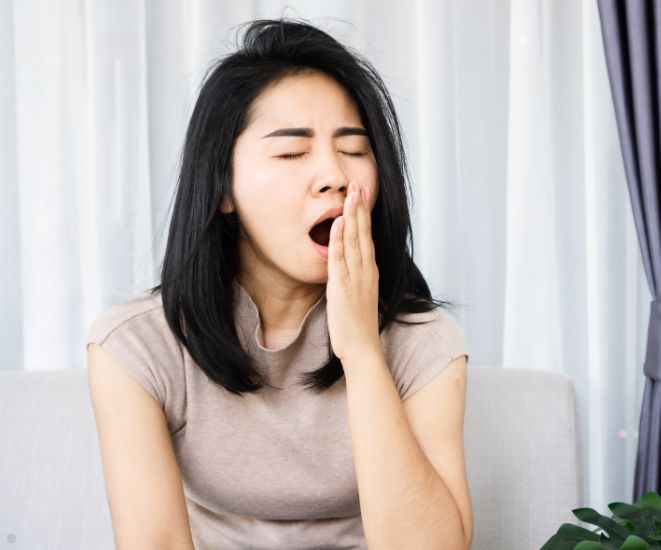Feeling Tired? This Might be Why
Excessive fatigue can be a big challenge to navigate, often making daily life significantly more difficult. One of the biggest issues with excessive fatigue is that it's often a symptom of something bigger, meaning it can be hard to know what the underlying cause is. While everyone feels tired from time to time, persistent sleepiness may point to underlying health concerns. Here are some of the most common causes of excessive sleepiness.
Sleep Disorders
There are a handful of different sleep disorders a person can have, all with similar symptoms. As a result, it can be difficult to pinpoint which one someone is specifically dealing with. Some of the most common sleep disorders include:
1. Sleep Apnea
Sleep apnea is a serious condition in which breathing repeatedly stops and starts during sleep, leading to poor quality rest and daytime fatigue. It's usually easy to identify, hallmarked by its loud snoring and gasping for air during the night. Some symptoms of sleep apnea include awakening with a dry mouth, morning headache, difficulty paying attention while awake and irritability.
2. Narcolepsy
This chronic neurological disorder disrupts the brain’s ability to regulate sleep-wake cycles. People with narcolepsy may feel rested after waking up but feel tired throughout the day. This often leads to, and is most commonly characterized by, sudden sleep attacks during the day.
3. Insomnia
Insomnia is understood as a difficulty falling or staying asleep, which can lead to insufficient rest. This often leaves individuals feeling tired and sluggish during the day.
4. Restless Leg Syndrome
Restless leg syndrome (RLS) is a neurological disorder that causes a feeling of discomfort in the legs, resulting in an irresistible urge to move them. This can lead to difficult falling or staying asleep, which can make you feel excessively tired throughout the day.
Other Medical Causes
Excessive sleepiness can also be a result of medical causes. These are some of the most common sources:
1. Side Effects of Medications
Certain medications, such as antihistamines, antidepressants and sedatives, can cause drowsiness as a side effect.
2. Nocturia
Nocturia is a condition that causes you to wake up during the night to pee. Frequent nighttime urination can interrupt sleep cycles and lead to daytime tiredness. This condition is often associated with aging, pregnancy or underlying health issues like diabetes.
3. Mental Health Disorders
Mental health conditions such as depression and anxiety can interfere with sleep quality, resulting in excessive sleepiness throughout the day.
4. Chronic Fatigue Syndrome (CFS)
CFS is a complex disorder that is characterized by extreme fatigue that doesn’t improve with rest. It’s often accompanied by other symptoms like muscle pain and memory problems.
5. Thyroid Disorders
Hypothyroidism, or an underactive thyroid, can slow metabolism and cause fatigue.
Lifestyle Factors
Relatively simple lifestyle factors can actually have a large impact on overall sleep quality and excessive sleepiness. Here are some of the most common lifestyle factors that might explain lower energy levels:
1. Poor Sleep Hygiene
Sleep hygiene is key to sleeping well. This can take the form of irregular sleep schedules, excessive screen time and consuming caffeine or alcohol close to bedtime. These are all factors that can negatively impact your sleep.
2. Shift Work
Irregular work hours or rotating shifts can disrupt the body’s natural circadian rhythm, leading to sleep difficulties.
3. Nutritional Deficiencies
Low levels of iron, vitamin D or vitamin B12 can contribute to feelings of exhaustion.
4. Obesity
Being obese can have a large impact on your sleep for a variety of reasons. Not only is there a strong correlation between obesity and sleep apnea but increased metabolic demands on the body from carrying extra weight and reduced physical activity levels can make a person feel overwhelmingly tired throughout the day and struggle to fall asleep.
When to Seek Help
As previously mentioned, it's not inherently problematic to be sleepy. However, it is important to know when to seek help about lower energy levels.
If excessive sleepiness persists despite adequate rest, this is usually a sign to consult a healthcare professional. They can perform evaluations, recommend lifestyle adjustments or suggest treatments to address the underlying causes.
Understanding your underlying conditions can help identify the root cause of your fatigue, and ultimately facilitate a solution and plan to regain strength and energy.
